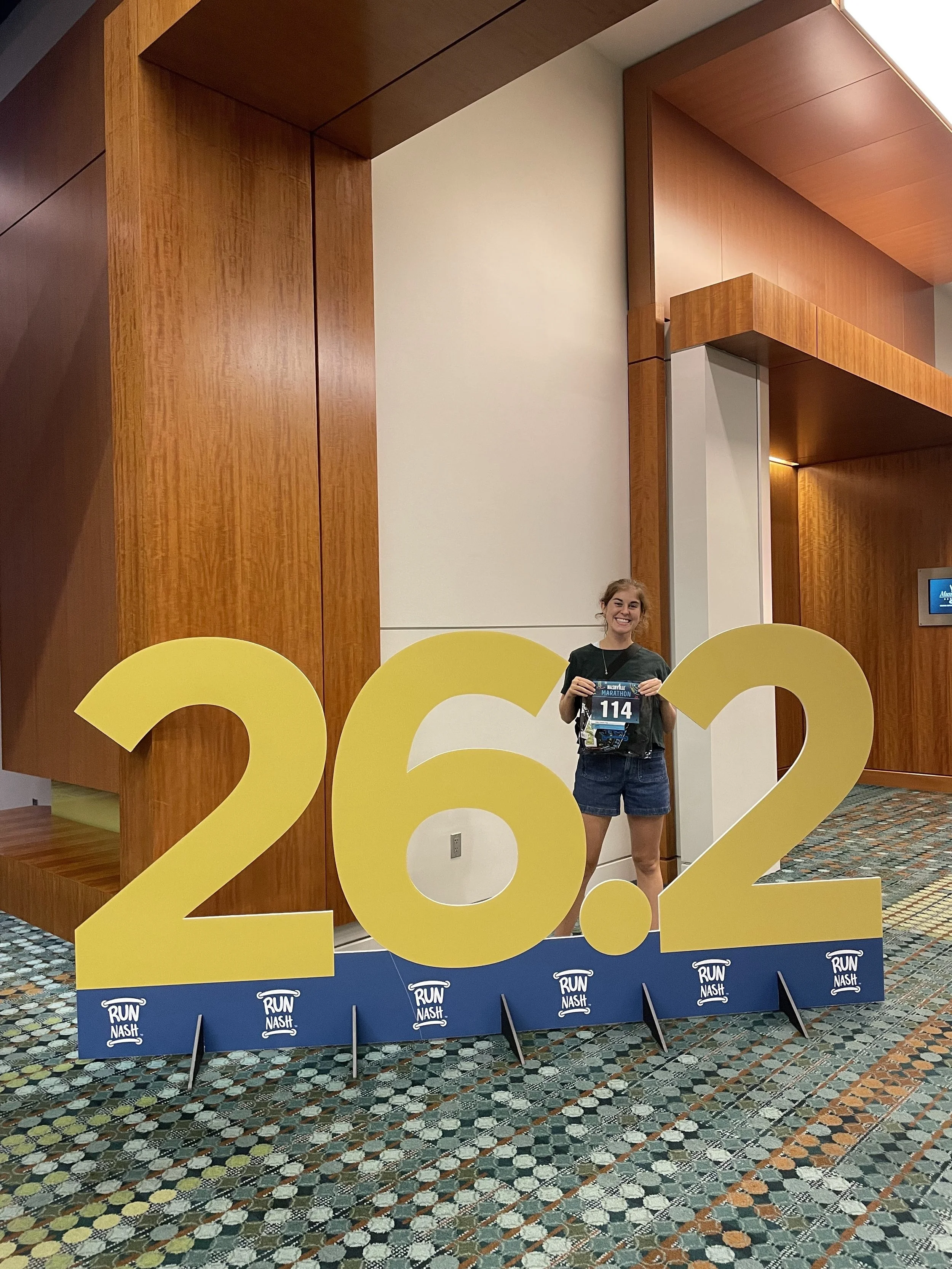What Running Taught Me About Mobilizing Operations
How endurance training shaped my mindset around process, planning and project management in agency life
I’ve been an athlete my entire life. Even after being diagnosed with an autoimmune disease in high school, effectively ending my 10-year youth sports “all-star” soccer career, I found a new path—running.
I started small. Three or four miles at a time, just enough to feel the runner’s high without totally burning out. But in my early 20s, I set what felt like an outrageous stretch goal: run a half marathon. And my sister jumped in with me.
We laid out a 20-week plan the old-school way—printed calendar, colorful pens, mileage scribbled into each day’s box—and started chipping away. Over 300 training miles later, we were standing in tree-covered, hilly Roswell, Georgia, at the start line of the Area 13.1 Alien & Terrestrial Half Marathon (yes, you heard that right… aliens).
Buzzing and excited, I remember chatting with a couple before the race, asking them all about their training plan. Their response? “Oh, we didn’t train. This is just what we do on weekends!” I remember thinking: Wow. That’s what is possible one day.
That race was tough. My legs felt like jelly afterward, but I crossed the finish line. And even as I hobbled back to the car, I was already thinking about the next one. You could say I was hooked.
Fast-forward to today, and I’ve completed three half marathons and one full marathon. I’ve raced across Alabama’s rolling hills, Georgia’s tree-lined streets, the bustling energy of New York City and the vibrant avenues of Nashville. I’ve run in 90-degree heat, desperate for a breeze, and in 30-degree chill, daydreaming about a fire. There have been brutal hills, blessed stretches of flat road and everything in between. Every course, every race taught me something new about myself—that I can overcome hard things.
It also taught me so much more than just running, but about structure, process and momentum. Along the way, I realized something important. Running taught me just as much about discipline and planning as any business class I took while earning my MBA. That mindset sparked my interest in agency operations.
In 2022, I joined forces with Peritus’ president, Louise Oliver, to launch our firm’s first-ever operations department. From there, the work snowballed—leading the full adoption of our first-ever project management tool and overhauling everything from meeting processes to file management. Whether it was implementing No Meetings Day to safeguard focus time or reorganizing our tech stack to prevent brain fatigue, our approach to operations became a process of continuous improvement.
And much like my running journey, these results didn’t come overnight. With consistency and discipline, we evolved from operating in silos to rowing together.
So, in celebration of “National Running Day,” here are a few lessons from running that shaped how we mobilize operations at Peritus.
1. Start Small, Stay Consistent
When I first started running, I knew better than to tackle 10 miles on day one. I stuck to short, manageable runs and built up slowly, giving my body (and confidence) time to catch up.
Same goes for operations. You don’t have to fix everything at once. Start with one process. At Peritus, we kicked things off by auditing our meetings—adding a monthly No Meetings Day, trimming recurring calls we didn’t really need and implementing a consistent meeting agenda template. Small changes, repeated consistently, add up to big wins.
2. Seek Out Experts Early
When I started running, I didn’t wing it. I turned to pros like @fastandflow and @mandymovez for advice on everything from shoes to mindset—and it made all the difference.
Same with operations. Don’t reinvent the wheel; find people who’ve already built it. At Peritus, we lean on industry colleagues through PRGN and PRSA to tap into seasoned pros. When we outgrew our “live in Outlook” days, we partnered with operational consultants ScaleTime to level up our project management—and it transformed the way we worked.
3. Follow the Plan, but Stay Flexible
When I trained for my marathon, my 20-week plan was practically a shrine on my fridge. But sometimes life threw curveballs—sick days, bad weather, last-minute work trips—and I had to roll with it. The plan kept me grounded, not chained.
The same goes for agency ops. You need a plan, but be ready to adjust. When we revamped our tech stack at Peritus, we aimed for full alignment, but quickly realized it was unrealistic. Each tool had its quirks and chasing that perfect alignment wasn’t worth the headache. Enter the 80-20 rule: focus on the 80% that works and don’t let perfection get in the way of progress.
4. The Rinse is Just as Important as the Repeat
You have to start somewhere, so build a simple, imperfect process and dive in. Run it, test it, tweak it. With each cycle, you’ll uncover what works, what doesn’t and where you need to adjust.
When I ran my first half marathon, my time wasn’t impressive, but I crossed the finish line. The next race? Faster. The one after that? Even faster. In both running and operations, perfection can’t hold you back. Done is better than perfect, especially when you’re laying the groundwork.
When we rolled out our project management tool, it wasn’t flawless, but in 1.5 years, we’ve made countless improvements. We templated our boards for consistency, got clearer on team roles and responsibilities and added integrations to level up the tool. Each change helped us get better at using the platform—and in turn, it’s helped us improve the way we manage projects overall.
5. Teamwork Makes the Dreamwork
If you’re not a runner, run clubs might seem… a little intense. Why are people waking up at 5 a.m. to run in the dark? But let me tell you, it works because you’ve got a team beside you. Accountability, camaraderie, momentum—it’s what gets you through the early miles and makes the grind fun (even if you’re not a morning person, like me).
Agency ops is no different. If you want a process to stick, your team has to be bought in. The earlier you bring them in, the more likely they are to take ownership and run with it. Shared energy builds momentum—and momentum builds real, lasting change.
Our Takeaway
You don’t need to have it all figured out to get started. Whether you’re training for a marathon or building out agency operations, progress comes from showing up consistently, staying disciplined and embracing the process—even when it’s messy. Small steps add up, and over time, they lead to big, lasting change.







